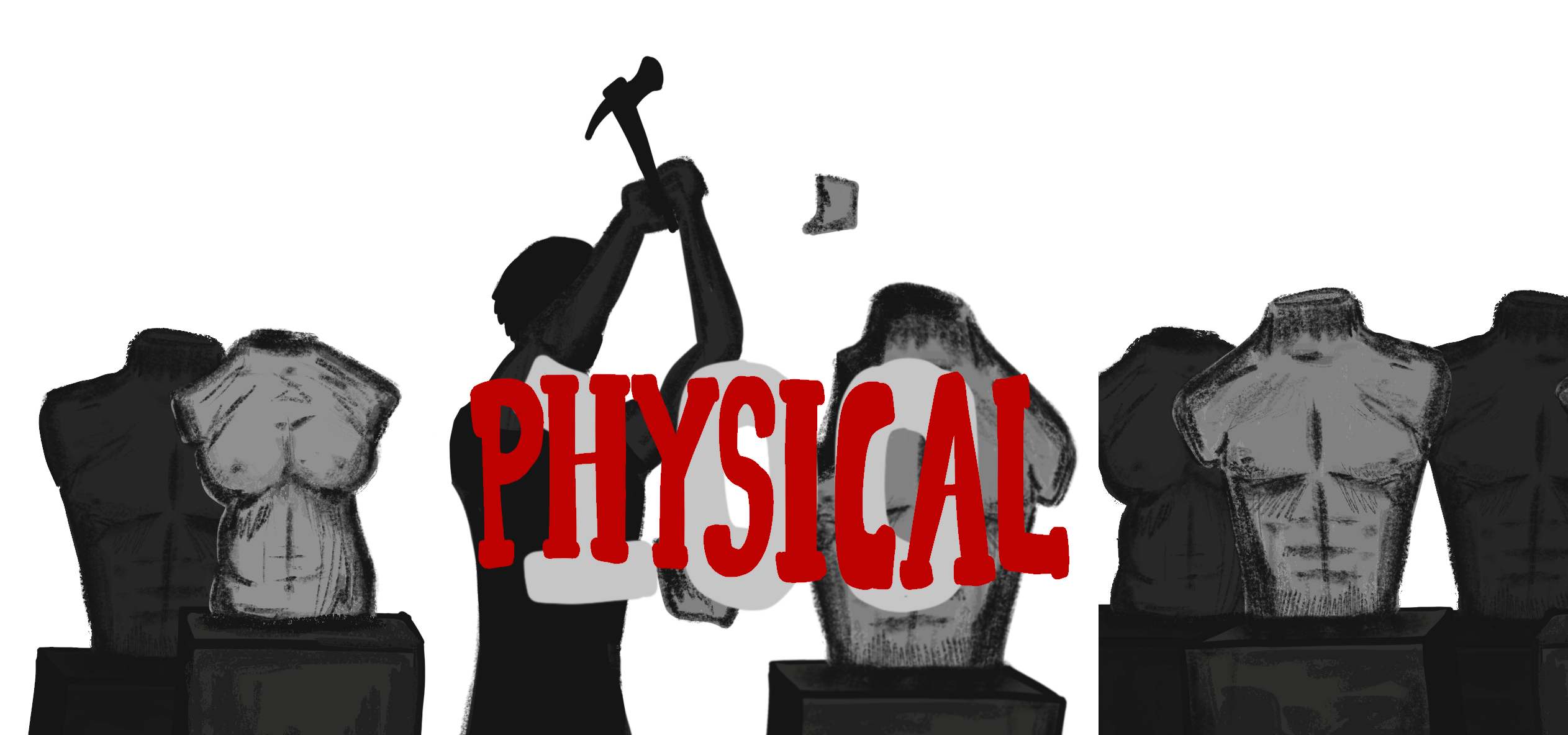“Physical: 100” is not just about attaining the “perfect body”
April, 2023
How far would you go to achieve the “perfect body”?
South Korea’s newest reality show, “Physical: 100,” delves
into this question with its “Squid Game”-like premise,
striving to discover the “fittest” among 100 contestants
of various body types and builds. From team games to
one-on-one matchups, the challenges are relentless and
the stakes are high, with a cash price of 300 million won
(around 230 thousand U.S. dollars) on the line. While the
games attempt to push each contestant’s willpower and
physical limitations, it also sheds light on the concept of
physical perfection and its impact on society.
Behind the glittering aesthetics and stunning visuals
of Korean content, especially in the recent global
phenomenon of K-pop, lies a relentless pursuit of
perfection. Big entertainment companies not only seek
popstar-worthy skills, such as captivating vocals and
polished dancing moves, but also prioritize appearance,
the major factor in determining if one will make it. In this
highly competitive industry, even
the slightest imperfection is not
tolerable if one cannot meet
the society’s beauty
standards, which includes features like radiant skin, double eyelids, a small
face, and a tall, thin figure. In female idols, an hourglass
body shape is the most desirable, while for males, they
are expected to have a muscular and toned physique.
However, the participants in “Physical: 100” attempt
to debunk the body standard Korea has set and promote
a more inclusive image of the human
body. For example, women show off
their toned muscles and larger frames.
Meanwhile, men who don’t fit into
the traditional mold of a muscular
physique fight proudly in the arena.
They play a role in challenging the
stereotypes of the desired Korean
physique, sending a message to
audiences that it’s important to break
away from the norms.
Unfortunately for K-pop idols,
the pressure to maintain a perfect
appearance extends further than just
the selection process. They face the expectation to maintain
a flawless appearance and youthful image, forcing them
to resort to grueling
gym workouts,
heavy dieting, and
dangerous weight
loss methods.
According to
Business Insider
in 2019, these
consistent routines
are doing more harm
than good, contrary to
what might appear
on screen.
However, Korea’s appearance-obsessed culture is
not just limited to the entertainment industry but has
expanded to the rest of the nation. Many Koreans and
other East Asians feel the pressure to conform to to
societal beauty standards, leading to a surge in cosmetic
surgery procedures. As such, South Korea has emerged
as the plastic surgery capital of the world.
This obsession with achieving the ideal
appearance extends beyond facial features
and includes striving for the ideal body type
as well, with the belief that it can build up their
status in society. The link between physical
appearance and success creates a harmful
notion as it builds onto the pervasive issue of
valuing physical attractiveness above all else,
degrading individuals to just their external
features. By placing a high standard and value
on visual appeal, it can claw people from the
inside and set up an unhealthy environment
for adults and youth.
For a show that seeks to find the “perfect body,”
physical perfection isn’t what the challenges attempt to
determine. Instead, it shows viewers the beauty of diverse
body types and celebrates their individual strengths,
challenging the notion of what physical perfection is. No
body type is superior to another, and each individual
excels in different areas of athleticism, whether that is
flexibility, stamina, or speed. In addition, the series forces
people from around the world to look beyond physical
appearance, and instead at one’s devotion, resilience, and
resourcefulness, as they navigate through the matches.
“Physical: 100” offers a refreshing and exhilarating take
on physical competition — one that prioritizes body
positivity, inclusivity, and individuality over the narrow
notions of physical perfection.